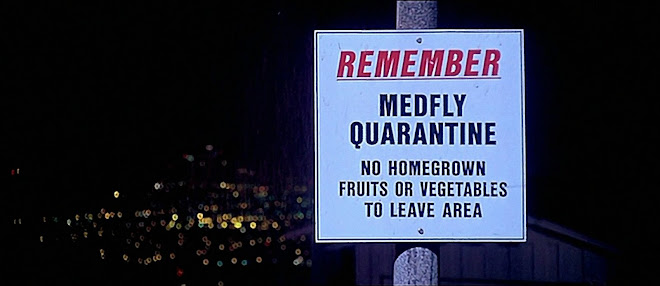
Few things in life are fair, but some things are so unfair they make you stop and wonder what the fucking point of getting up in the morning and going through the daily grind is. That's the state that the news of the death of Sally Menke, Quentin Tarantino's career long editor, has left me in. As most of you have probably noticed, I tend to avoid obituaries on this blog, for several reasons, but the primary reasons are A) Whenever anyone dies many movie blogs all chime in with their remembrances, most of which are more eloquent than I am capable of and B) Obituaries of people who worked in the movie industry tend to favor the work over the person, which annoys me. I'm not sad that Sally Menke isn't ever going to edit another movie again - well, I am, but that seems almost beside the point now - I'm sad that she isn't walking amongst us anymore. I'm sad that a director I value very much has lost a collaborator and a friend. I'm sad that her dog, who was with her on her ill-fated hiking trip, has lost an owner and companion. I'm sad for her friends who spent all of Monday worrying about her only to find out in the early hours of Tuesday morning that she was dead. I'm sad for her husband, her two kids, for anyone who was lucky enough to meet her.
And, yes, I'm sad about all the footage that will be shot by Quentin Tarantino throughout the rest of his career that will be unedited by her. I recall in a documentary I saw, that I can't exactly place now, where he said he always felt that he needed a woman to edit his pictures (which I think illuminates part of why he puts women on pedestals in his films, but I digress), his reasoning being that while a man would try to imprint his own ideas for what the film should be in the editing process, a woman would be more nurturing towards his vision. The way I paraphrased it makes it come off a little sexist, but I think the sentiment illuminates a lot about Menke as an artist - that she would listen to Tarantino and do everything within her considerable power to help him make the film he wanted to make. It seems that the two of them were on the same wavelength, and his work to this point has relied on her considerable abilities (he has even flat out stated that he considers her work vital to his own). He also said in that same documentary that cinema is like music, and cutting at the right vs. wrong instant is the cinematic equivalent of a sweet note vs. a sour note; Sally Menke prevented him from playing sour notes. He had such fondness for her that he would always have his actors do a "Hi Sally" take where they would look directly into the camera and say hello to his dear editor. Watching these outtakes now, some of which are available as extra features on his DVDs and on YouTube, is literally heartbreaking.
The only Sally Menke I ever knew was the professional Sally Menke, which was admittedly a distinct pleasure in its own right. It's hard to pick a favorite moment, but there are many unforgettable moments in Tarantino's films that result from her spectacular sense of cinematic rhythm: the final sequence of Reservoir Dogs, as intense as any moment in any movie you can think of; the dance sequence in Pulp Fiction, masterfully cut in time to "You Never Can Tell"; the genius mall sequence at the end of Jackie Brown, which creates a flawless unity of time and place; the fight with the Crazy 88's in Kill Bill, which is lightning fast yet never disorienting; the car chase that serves as the climax of Death Proof, which is visceral yet never sacrifices spacial continuity for cheap thrills; the unforgettable opening of Inglorious Basterds, where the tension builds slowly, deliberately, and when the violence explodes you can almost feel the bullets penetrating your flesh. All these moments belong to Menke as much as they belong to Tarantino.
For all these unforgettable moments, and many others, I will forever be thankful to Sally Menke. I will miss her as much as you can possibly miss someone you've never met. Rest in peace.

